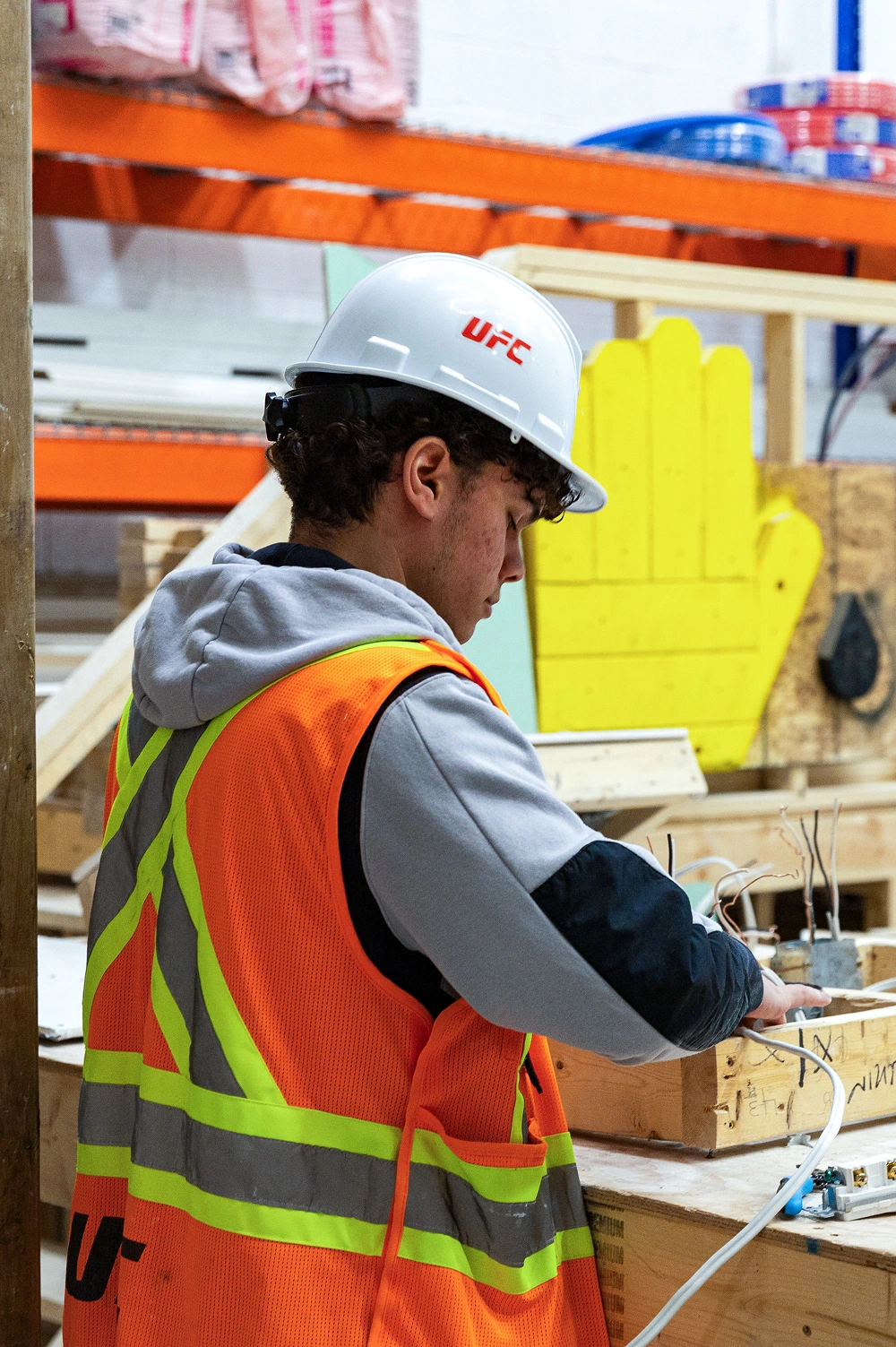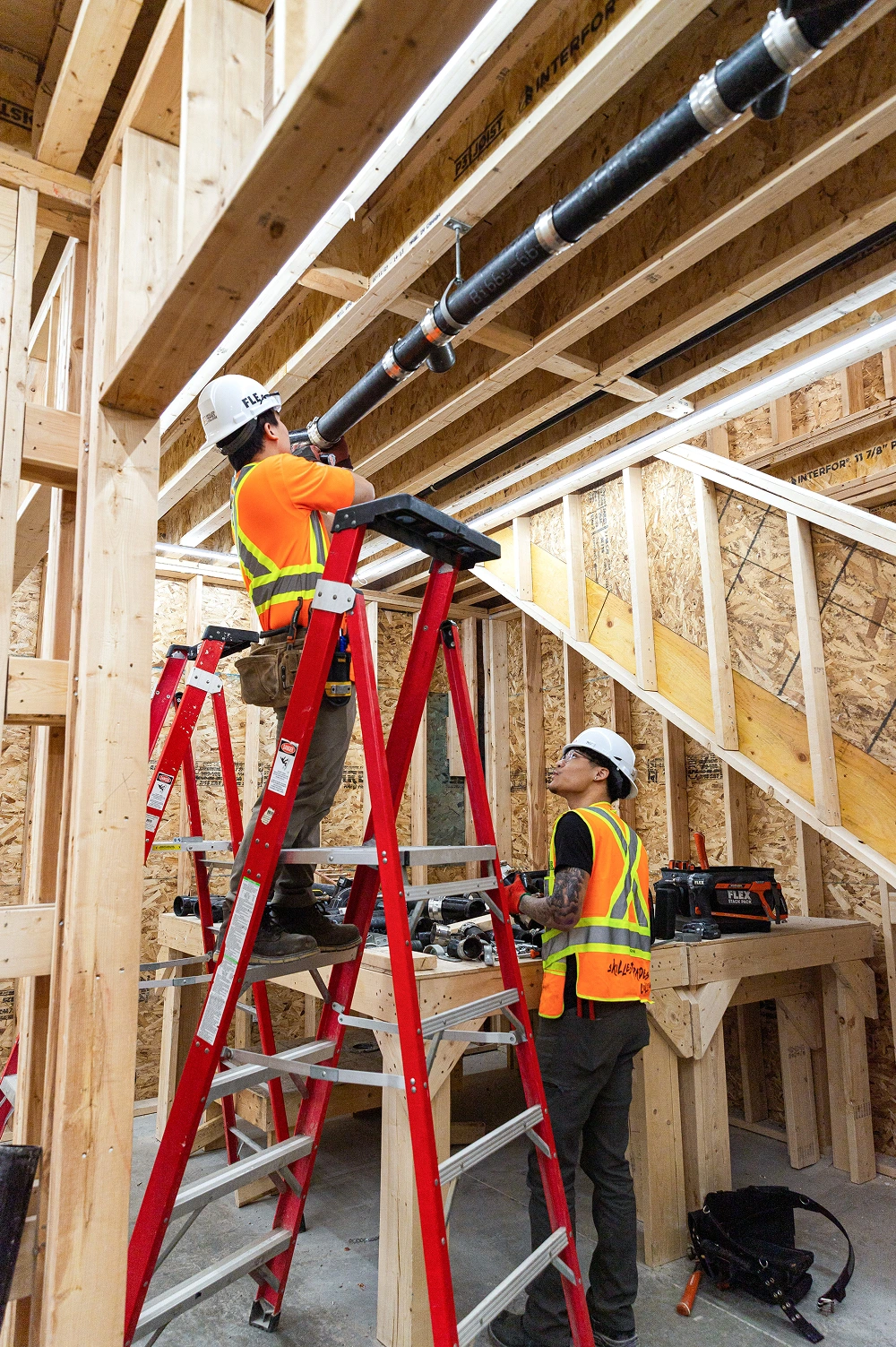Skilled Trades College vs. Community College

Published On
2022-12-15

There are some jobs that can give you security, higher income, and better job satisfaction compared to working in “traditional” careers—and you don’t need to complete a four-year university degree for it.As Canada starts opening the workforce again in these post-pandemic times, you’ll see that skilled trades jobs are—and have been for some time now—high on the list of jobs that are in demand.Still, because of the stigma surrounding skilled trades as a job, younger people entering the workforce aren’t as keen on learning about the benefits of a long-term skilled trades career. This is why, despite the seemingly endless encouragement from the government and the central part that skilled workers play in our everyday lives, skilled tradespeople are still in demand. Without fixing these issues, that large gap in the labour force will continue to grow.
One reason why skilled trades are in demand—and probably the biggest reason—comes down to a matter of demographics. Most skilled tradespeople who built and maintained communities in the country are retiring or have recently retired, leaving behind a void that is quite difficult to replace.Recent statistics show that the number of job vacancies increased by 2.7% compared to last year. This means that in the first three months of 2022, these vacancies reached a record of nearly one million across Canada. While that should be a cause for celebration for job hunters, employers are now having a hard time replacing the aging workforce because of the few numbers of young people entering the job market.There are a lot more myths and stigmas that comprise all the reasons why skilled trades jobs are in demand. But since there are too many to enumerate one by one, we have chosen our top five.Ready to learn what they are? Let’s dive in.

People rely on tradespeople to keep utilities running, maintain appliances, build roads, sustain infrastructure and so much more.In fact, despite the onslaught of the pandemic, skilled tradespeople found themselves continuously with work. They kept economies moving; ensuring that energy, health, and transportation systems are well-maintained.To say that skilled trades jobs are important is an understatement. Tradespeople are an integral part of society—and that is the plain truth.
This is not true. Most entry-level salaries start at $47,775 per year, and the skilled workers with years of experience make nearly $85,000 a year. Of course, this rate varies between regions, but the bottom line is that skilled trades workers earn competitive salaries. But a follow-up question to this might be: “Do skilled workers receive consistent income?”The answer is yes. While many are contract-based, some of the projects can take years to complete. General labourers make anywhere between $18 to $36 per hour, depending on experience. This makes getting a job in the trades industry stable and highly rewarding like other in-demand jobs.Additionally, most apprentices get to work on real projects under a skilled employer. While they earn their credentials, they also begin to play an important part in the economy, much like undergoing paid on-the-job training.
Many might think that because work for tradespeople is contractual, entering the workforce as a skilled tradesperson is a temporary job. But jobs in this industry offer long-term sustainable careers with plenty of opportunities to advance to managerial positions. Why else are our tradespeople only retiring now if this wasn’t a long-term career for them?Skilled trade jobs that are in demand, such as within the construction industry, offer a stable work environment for everyone no matter where they go. A Red Seal is issued to skilled trade workers once they finish their apprenticeship and complete the corresponding examination. This seal is a level of competency that’s recognized across the country, which means that people in the trade sector often have work flexibility and can take their careers wherever they go.Additionally, as the country enters post-pandemic times, construction sites are slowly opening back up and year-long projects are in full swing again—meaning there are even more available jobs opportunities.

This myth might have been true a few decades ago, but times have changed drastically. Still, among the list of jobs that are in demand, in the trades sector, only 3% of its workers are women. But the reason why the trades industry seems to be a male-dominated work environment isn’t because of the status quo, but because women (and minorities of colour) are under-represented.There are many opportunities for women to enter the skilled trades industry, and helping foster a workplace environment that welcomes them might fix the current issue of meeting labourer demands.
Another reason why there’s a shortage of labourers in the trades sector is because of this myth. Many apprentices are required to be proficient in sophisticated technology, advanced mathematics, and science to succeed in the skilled trades industry. Moreover, trainees need to learn technical knowledge in working with mechanical equipment. In today’s modern age, being well-versed in these facets is an irreplaceable asset in the trades sector.Trades school is also much more accessible and costs less than four-year college programs or universities. Not to mention, the required number of training years takes between two and five years to complete.
If you search the query: “What jobs are in demand in Canada?” You’ll find a variety of trades in the top five of that list. Skilled Trades Colleges offer several courses in the trade sector, ranging from home renovation to electrical and smart home wiring. Each program is designed to equip students with the necessary skills to succeed in the field, while providing apprentices with hands-on learning through simulated work environments in a lab.Want to know which in-demand trade is right for you? Contact us today!
9,281+
LIVES CHANGED

12,481+
WIRES PULLED

85,382+
2X4'S CUT

9,756+
PIPES LAYED

9,281+
LIVES CHANGED

12,481+
WIRES PULLED

85,382+
2X4'S CUT

9,756+
PIPES LAYED

9,281+
LIVES CHANGED

12,481+
WIRES PULLED

85,382+
2X4'S CUT

9,756+
PIPES LAYED
